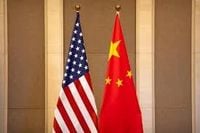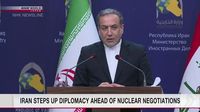Asian stock markets opened lower on April 16, 2025, as concerns over U.S. trade policies weighed heavily on investor sentiment. The recent announcement from the White House about temporary exemptions on tariffs for certain electronics from China has not alleviated worries. Investors are also closely monitoring the release of critical economic data from China, including the first quarter GDP figures.
The Nikkei index in Japan opened at 34,249.82 points, down 17.72 points or -0.05%. Meanwhile, Hong Kong's Hang Seng index started at 21,316.47 points, falling 149.80 points or -0.70%. The Shanghai Composite index remained unchanged at 3,267.66 points, while South Korea's KOSPI decreased by 0.2%, and Australia's S&P/ASX 200 edged down by 0.08%.
Market apprehension stems from the U.S. government's ongoing scrutiny of trade practices, particularly regarding semiconductors and pharmaceuticals. On April 14, 2025, the Federal Register indicated that the U.S. is beginning a review of import practices that could lead to increased tariffs on these goods. This investigation adds to the tension in U.S.-China trade relations, as it signals a potential escalation in tariffs that could affect a wide range of products.
According to reports, China is demanding that the U.S. show more respect before agreeing to trade negotiations. A source close to the Chinese government revealed that the Trump administration must control aggressive comments from its officials and address China's concerns about U.S. sanctions and the Taiwan issue. Furthermore, the Chinese government is looking for a designated individual to lead the negotiations, someone who has the President's support and can facilitate an agreement between President Trump and Chinese President Xi Jinping.
This source emphasized that respect is crucial for any interactions, as past comments from U.S. officials have raised doubts about Washington's stance. Despite Trump's relatively softer public remarks regarding Xi, other members of his administration have made more aggressive comments, leading to uncertainty in Beijing about the U.S. position.
In addition to trade tensions, the upcoming release of China's economic data adds another layer of complexity to the situation. The Office of National Statistics in China is expected to announce several key figures today, including March's housing price index, first-quarter GDP, industrial production, retail sales, fixed asset investment, and the unemployment rate.
These figures will be closely watched by investors, who are looking for signs of economic stability in the world's second-largest economy. Any significant deviations from expectations could further impact market sentiment and lead to fluctuations in stock prices across Asia.
Furthermore, the U.S. Trade Representative (USTR) is reportedly investigating trade practices that could lead to heightened scrutiny of China's compliance with trade agreements. This review signals a potential for increased trade tensions as the U.S. continues to express concerns about China's economic practices.
On the diplomatic front, Iran is also ramping up its diplomatic efforts ahead of a high-stakes nuclear negotiation with the United States scheduled for April 19, 2025. Iranian Foreign Minister Abbas Araqchi is set to visit Moscow this week to discuss the recent talks held with U.S. officials on April 12, marking the first discussions since Trump resumed office.
The Iranian government aims to limit its nuclear program to prevent the acquisition of nuclear weapons, a goal that has been a focal point of U.S. foreign policy. Araqchi's discussions in Moscow will include talks with Rafael Grossi, the Director-General of the International Atomic Energy Agency, who is visiting Iran on April 16.
The backdrop of these negotiations highlights the complexities of international trade and diplomacy, as nations navigate their interests while addressing concerns over compliance and respect in negotiations. The outcome of these discussions could have significant implications for global markets and international relations.
As the day unfolds, investors and officials alike remain alert to the developments in both trade and diplomatic negotiations, understanding that the outcomes could shape economic trajectories in the coming months.






